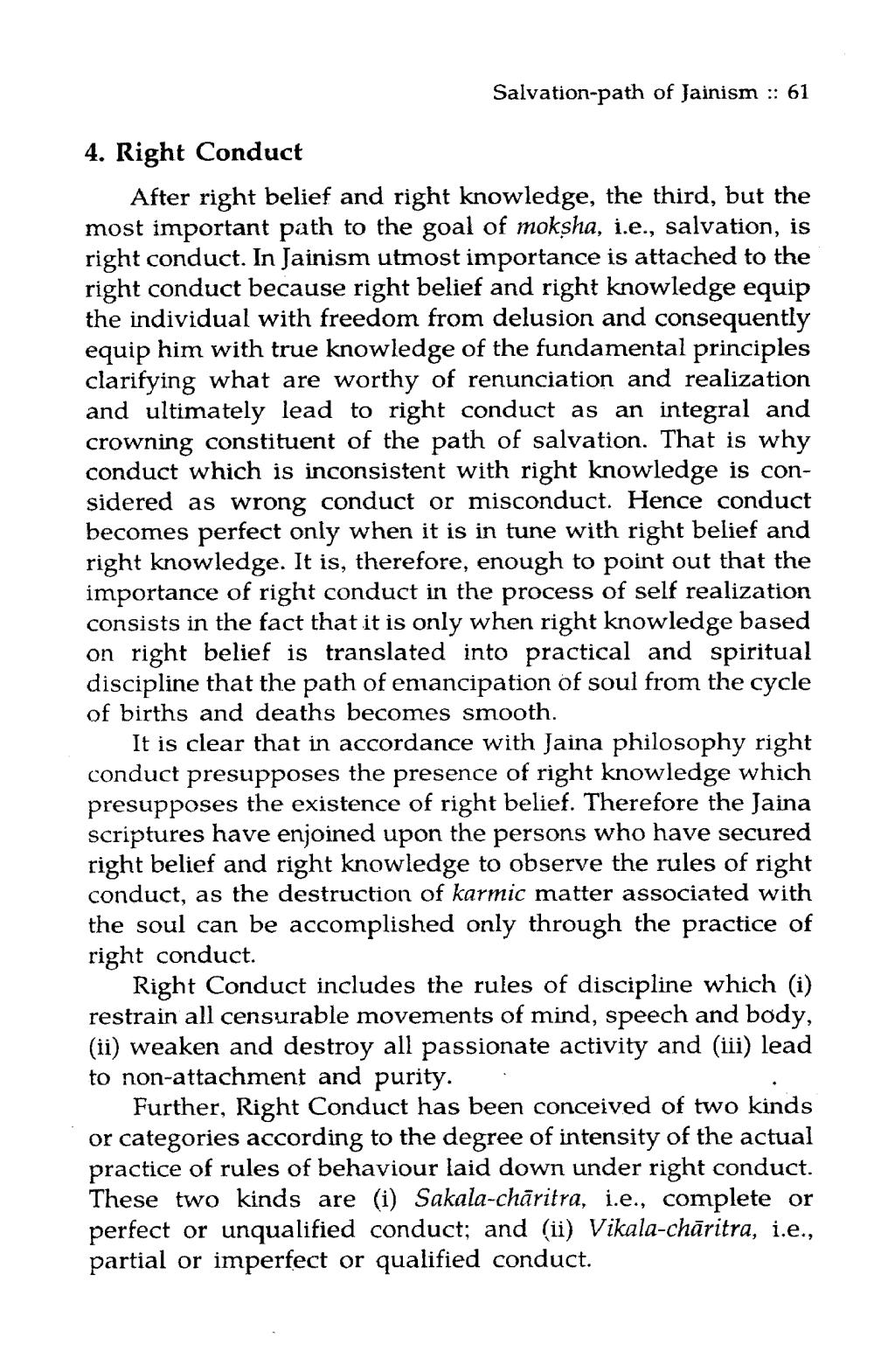________________
Salvation-path of Jainism :: 61
4. Right Conduct
After right belief and right knowledge, the third, but the most important path to the goal of moksha, i.e., salvation, is right conduct. In Jainism utmost importance is attached to the right conduct because right belief and right knowledge equip the individual with freedom from delusion and consequently equip him with true knowledge of the fundamental principles clarifying what are worthy of renunciation and realization and ultimately lead to right conduct as an integral and crowning constituent of the path of salvation. That is why conduct which is inconsistent with right knowledge is considered as wrong conduct or misconduct. Hence conduct becomes perfect only when it is in tune with right belief and right knowledge. It is, therefore, enough to point out that the importance of right conduct in the process of self realization consists in the fact that it is only when right knowledge based on right belief is translated into practical and spiritual discipline that the path of emancipation of soul from the cycle of births and deaths becomes smooth.
It is clear that in accordance with Jaina philosophy right conduct presupposes the presence of right knowledge which presupposes the existence of right belief. Therefore the Jaina scriptures have enjoined upon the persons who have secured right belief and right knowledge to observe the rules of right conduct, as the destruction of karmic matter associated with the soul can be accomplished only through the practice of right conduct.
Right Conduct includes the rules of discipline which (i) restrain all censurable movements of mind, speech and body, (ii) weaken and destroy all passionate activity and (iii) lead to non-attachment and purity. .
Further, Right Conduct has been conceived of two kinds or categories according to the degree of intensity of the actual practice of rules of behaviour laid down under right conduct. These two kinds are (i) Sakala-chāritra, i.e., complete or perfect or unqualified conduct; and (ii) Vikala-chāritra, i.e., partial or imperfect or qualified conduct.




